la semana pasada me reuní con un grupo de jovenes investigadores en la "no-conferencia de la próxima generación de investigadores" en tucson. fue (para mi) un muy bienvenido cambio temporal de sitio, ademas de una oportunidad a conocer mas gente joven interesada en el golfo de california y la región del desierto sonorense, e intercambiar ideas sobre la conservación y futuro sustentable de la región.
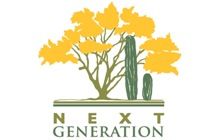
[nextgen website]

[starr pass hotel where we stayed / hotel donde nos quedabamos]
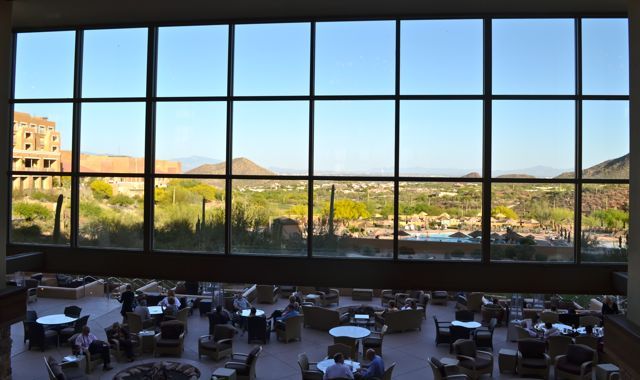
[hotel lobby]

[sunrise looking over tucson / amanacer]
it was an interesting conglomerate of marine scientists, botanists, desert biologists of many types, archaeologists, geologists, anthropologists, and many more. many students, some post-docs, and a few NGO-ers. what a great idea - many of us tout the benefits of interdisciplinary science (i mean, my master's degree is interdisciplinary and it's becoming a bit more widespread and popular in publications) and this was an opportunity to sit down next to someone from another discipline and discuss why archaeology is important to marine conservation efforts, what us marine people can learn from terrestrial people, or how botanists, anthropologists, and biologists can come together to better understand the ecosystem. a great exchange of ideas and thoughts and discussions ensued.
the idea behind the "unconference" is to promote that kind-of discussion. it is organic and flexible and flows. it was a good format, and perfect for this sort of event. the first day we gathered at the arizona-sonora desert museum and determined our agenda. some of us (myself included) had submitted ideas for sessions and we presented those ideas, combined them with others and set up around 20 sessions, 3 running concurrently for an hour and half. and then you could wander between sessions or stay at on that particularly interested you. the variety was impressive: 4-d geologic history of the gulf of california, expertise and human-ecological interactions, desert oases, challenges between nature conservation and conservation of archaeological heritage, access to our deserts, social networks, plant/animal/microbe interactions, multi-national conservation in the era of border security, native view, among many more.
our group came together, 100 people, as probably a 60-40 mexican-american split. with an interesting mix of languages - many of us speak both languages, others less so. whispered translations and explanations of new vocabulary words were abundant. sitting in on the plant-animal interactions session i learned more botany terms in spanish than i probably know in english. notes from sessions are an equally interesting mix. to me, it was exemplary of what makes this region so unique and amazing - this blend of cultures and easy transition between the two.
fue un conglomerado interesante de científicos marinos, botánicos, biologos del desierto de muchos tipos, arqueologos, geólogos, antropólogos, y muchos mas. muchos estudiantes, algunos post-docs, y algunos representantes de ONGs. esto fue una gran idea - muchas de nosotros promocionamos los beneficios de la ciencia interdisciplinaria (como ejemplo, mi maestría es interdisciplinaria y es diversa al momento de realizar publicaciones) y este fue una oportunidad para sentarte a lado de alguien quien estudia algo diferente y platicar de porque la arqueologia es importante para los esfuerzos de conservación marina, en como nosotros, los interesados en el mar podríamos aprender de gente quienes estudian cosas terrestres, o como botánicos, antropólogos, y biólogos podrían reunirse para entender mejor el ecosistema. se llevaron a cabo un intercambio de ideas, pensamientos, y platicas.
la idea atras la "no-conferencia" es a promover este tipo de platica. es organica, flexible, y fluya. era un formato genial y perfecto por este evento. el primer día nos sentábamos en el museo del desierto de arizona-sonora y decidíamos nuestra agenda. algunos (incluyendo a mi) sometimos ideas de sesiones anteriormente, y las presentábamos, las combinábamos con otras, y establecíamos algunos 20 sesiones, 3 a la vez, 1.5 horas cada una. y pudrías quedarte en una o moverte por otra. la variedad era impresionante: la historia geológica 4-d del golfo de california, especialidad y interacciones humano-ecologica, osases del desierto, retos entre la conservación natural y conservación del patrimonio archaeologico, acceso a nuestros desiertos, redes sociales, interacciones de plantas-animales-microbos, conservación multi-nacional en la era de seguridad de la frontera, vista nativa, y muchas mas.
nuestro grupo nos reunimos 100 personas, con una proporcion de alrededor 60-40 mexicanos-estadunidenses. con una mezcla interesante de idiomas - la mayoría hablamos los dos idiomas, otros no tanto. las traducciones susurradas y las explicaciones de nuevas palabras de vocabularios fueron constantes. en la sesión de interacciones plantas-animales-microbios, aprendí mas palabras sobre botánica de las que conozco en ingles. la notas de las sesiones tambien fueron una mezcla. para mi, es un ejemplo maravilloso de que hace a esta región tan única e increíble - una combinación de la transición fácil entre los dos.
on a hike up king's canyon we strolled our way along, we stopped often to hear about the flowers, the rocks, the insects from the respective experts (and us marine-people joked about needing to be near the sea).
en una caminata por king's canyon caminábamos pausadamente, parando de manera seguida para aprender sobre las flores, piedras, y de los expertos en insectos (y los que estudian en mar bromeando que necesitan estar cerca al mar).

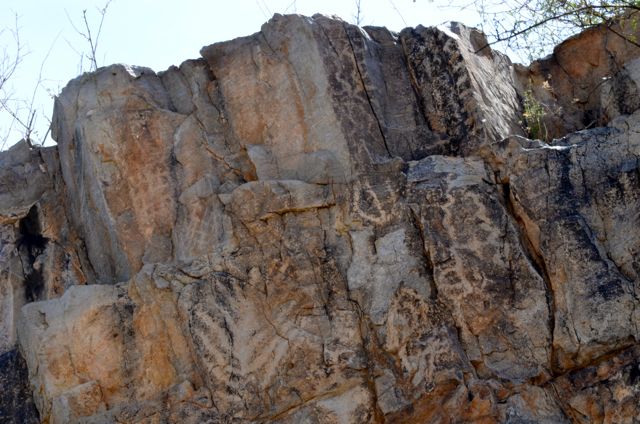
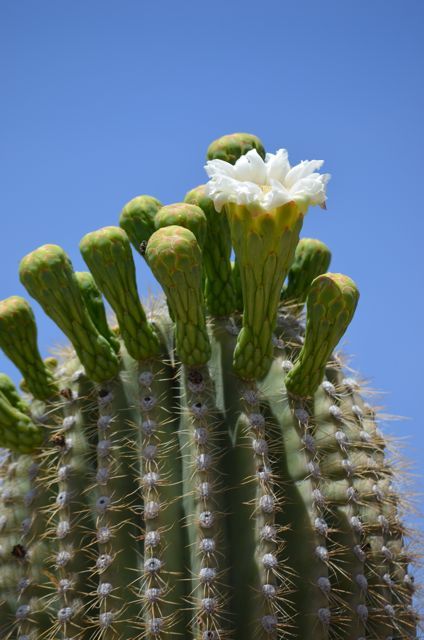
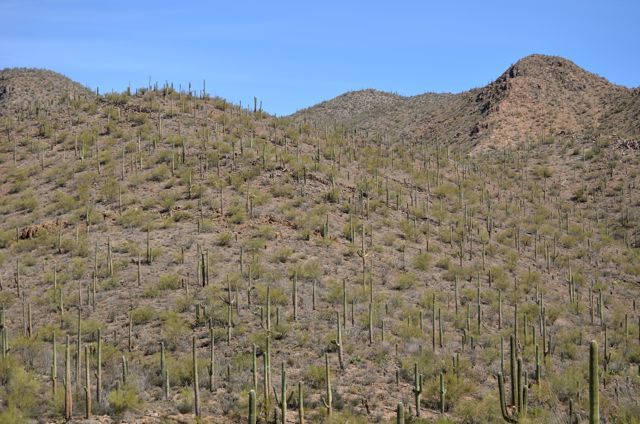
and being at the desert museum allowed for the chance to see animals too.
y en el museo del desierto vimos a los animales también.
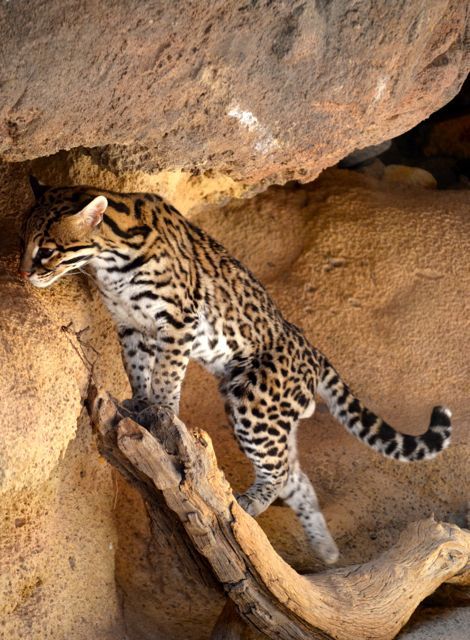
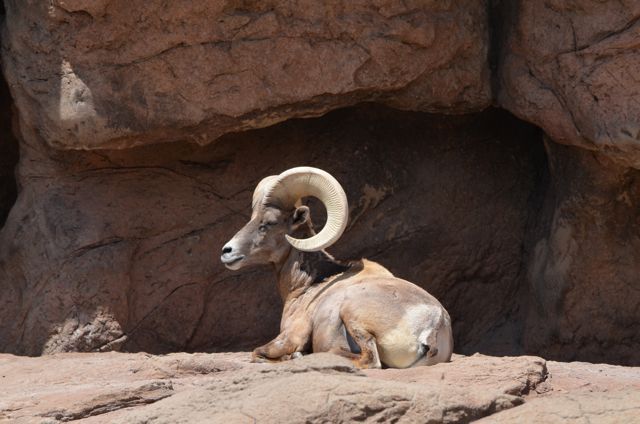
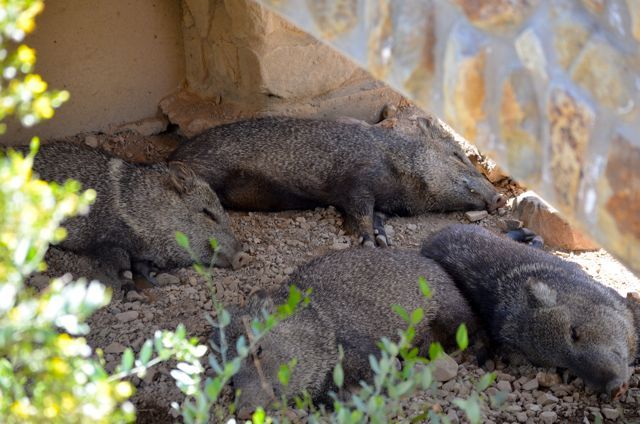

we talked about next steps and the challenges facing the area. what the outcomes of this group should be and how collaborations can move forward. i am on a bit of a high from being in my beloved desert again and meeting new people and discussing things that are so near and dear to my heart. i feel inspired. i cannot wait to see what the next steps will be.
platicábamos de los próximos pasos y de los retos de la region. que serán los resultados del grupo y como las colaboraciones puedan salir adelante. estoy muy feliz de estar en mi desierto querido de nuevo y conociendo mas y nueva gente y platicando cosas que me importan tanto. no puedo esperar ver que los próximos pasos serán.
thank you to all
gracias a todos
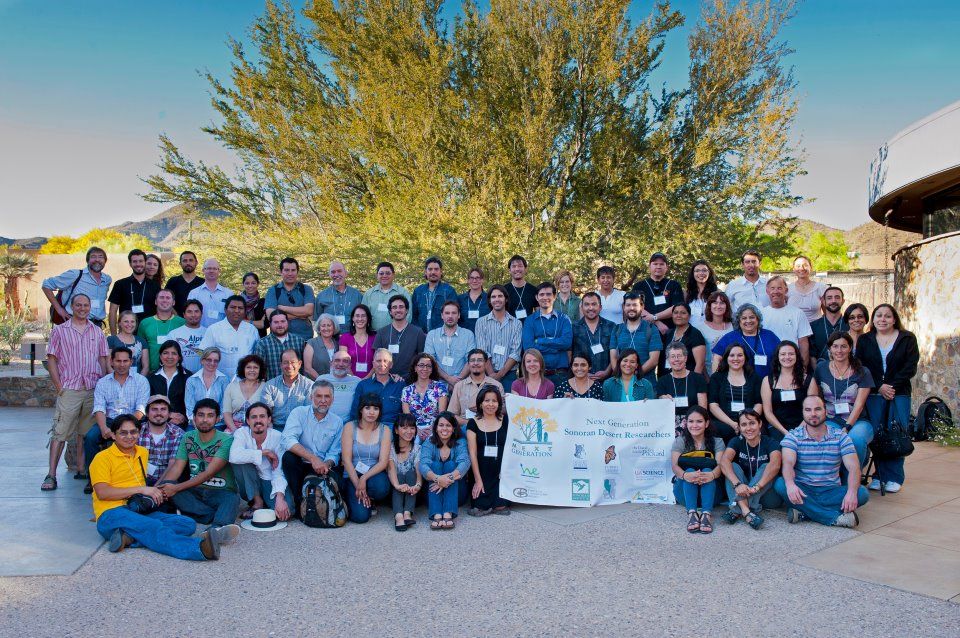
[by octavio aburto / por octavio aburto]